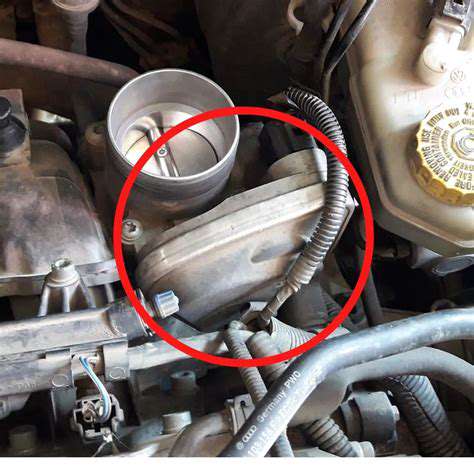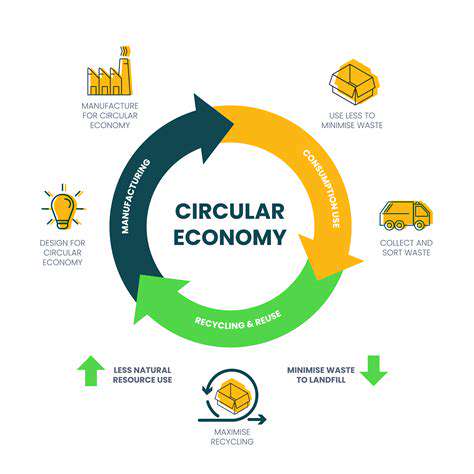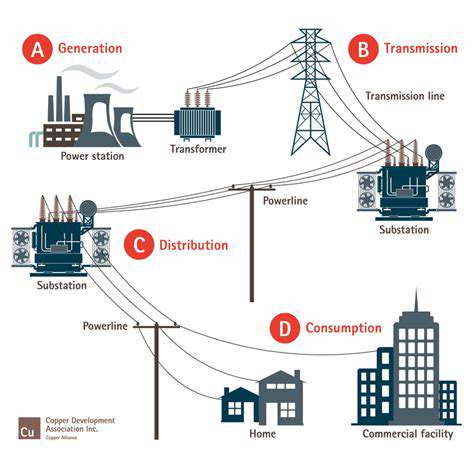Exploring Solid-State Batteries
Solid-state batteries, a promising alternative to liquid-electrolyte-based lithium-ion batteries, offer significant advantages. They eliminate the flammable organic electrolytes present in current lithium-ion batteries, greatly enhancing safety. This eliminates the risk of thermal runaway, a major concern in high-energy-density battery packs, and potentially allows for higher energy density and faster charging rates. Researchers are actively pursuing different solid electrolytes, including ceramic materials and polymer composites, to optimize performance and stability. This research is a crucial step towards realizing the full potential of electric vehicles (EVs).
The development of stable and conductive solid electrolytes remains a key challenge. However, significant progress has been made in recent years, with researchers successfully demonstrating improved electrochemical performance in solid-state cells. This advancement holds great promise for the future of EV batteries, offering a pathway towards safer and more efficient power storage solutions.
Investigating Lithium-Metal Anodes
Lithium metal anodes, theoretically capable of delivering extremely high energy densities, present a compelling alternative to conventional graphite anodes. However, the inherent issues of dendrite formation and capacity fading pose significant hurdles. Strategies to mitigate these issues involve novel surface coatings, advanced electrolyte designs, and innovative cell architectures. These advancements are critical for achieving the full potential of lithium metal batteries, which could revolutionize EV technology.
Advanced Electrolyte Materials
The electrolyte, a crucial component in lithium-ion batteries, plays a vital role in ion transport and stability. Researchers are exploring various electrolyte chemistries, including ionic liquids and polymer electrolytes, to improve conductivity, enhance safety, and widen the electrochemical window. The development of these advanced electrolytes is crucial for achieving higher energy density, faster charging rates, and improved lifespan of EV batteries. This research focuses on discovering safer and more efficient ways to transport lithium ions within the battery.
Nanostructured Materials for Enhanced Performance
Nanostructured materials, with their enhanced surface area and unique properties, are being integrated into both electrodes and electrolytes to boost performance. These materials can significantly improve ion diffusion rates, enhance electron conductivity, and provide greater stability. Utilizing nanomaterials to improve performance in EV batteries is an exciting area of research, with the potential to significantly advance EV technology.
Next-Generation Cathode Materials
Exploring novel cathode materials is essential for achieving higher energy densities and improved power capabilities in lithium-ion batteries. Researchers are investigating advanced transition metal oxides, sulfides, and phosphates to enhance the electrochemical performance. These new cathode materials aim to deliver a higher energy density, which is crucial for extending the range and performance of electric vehicles.
Improving Battery Management Systems (BMS)
Advanced battery management systems (BMS) are essential for optimizing battery performance and ensuring safety in EV applications. These systems monitor cell voltages, temperatures, and other critical parameters in real-time. Sophisticated algorithms and data analysis techniques allow for proactive intervention to prevent thermal runaway and extend battery lifespan. This crucial aspect of EV technology is being further refined to improve the overall reliability and safety of electric vehicles.
The Role of Artificial Intelligence in Battery Optimization
Artificial intelligence (AI) is emerging as a powerful tool in battery research and development. AI algorithms can analyze vast datasets of battery performance data to identify patterns, predict degradation, and optimize battery design parameters. This predictive capability allows for more efficient battery development cycles and ultimately leads to improved battery performance and lifespan, making them more suitable for EV applications. The integration of AI in battery research is a crucial step towards developing more sustainable and efficient electric vehicles.
Advanced Battery Management Systems (BMS): Optimizing Performance and Safety

Improving Battery Performance
Advanced battery management systems (BMS) play a crucial role in optimizing battery performance. They actively monitor and control various parameters, such as voltage, temperature, and current, to ensure the battery operates within its safe and optimal range. This proactive approach significantly extends the lifespan of the battery and enhances its overall efficiency.
By constantly monitoring and adjusting operating conditions, BMS systems prevent overcharging and over-discharging, which are major contributors to premature battery degradation. This preventative maintenance is critical for maintaining consistent performance and preventing costly replacements.
Enhanced Safety Features
Modern BMS systems incorporate advanced safety features to protect the battery and surrounding electronics from potential hazards. These features include thermal management systems that prevent overheating and short-circuit protection to safeguard against electrical faults. These safety measures are paramount in preventing accidents and ensuring the long-term reliability of the battery system.
Furthermore, advanced BMS systems often include fault detection and isolation mechanisms. This allows for rapid identification and isolation of any faults within the battery pack, minimizing potential risks and preventing further damage to the system.
Real-Time Data Acquisition and Analysis
A key aspect of advanced BMS systems is their ability to collect and analyze real-time data from the battery. This data includes critical parameters like battery voltage, temperature, and current draw. This real-time data is invaluable for understanding battery health, identifying potential issues, and optimizing performance.
Through sophisticated algorithms, the BMS can analyze this data to predict future performance trends, allowing for proactive maintenance and preventing unexpected failures. This data-driven approach allows for the development of predictive models that significantly enhance the lifespan and reliability of the battery system.
Optimized Charging and Discharging
Advanced BMS systems often feature intelligent charging and discharging algorithms. These algorithms dynamically adjust charging and discharging rates based on real-time battery conditions, maximizing energy utilization and minimizing energy loss. Precise control over charging and discharging processes is critical for maximizing battery capacity and extending its lifespan.
This optimization process allows for a more efficient use of the battery's energy, increasing its overall performance and minimizing energy wastage.
Advanced Diagnostics and Monitoring
Advanced BMS systems provide comprehensive diagnostic capabilities, allowing for real-time monitoring of battery health and performance. This monitoring provides valuable insights into the battery's operational status, enabling proactive maintenance and preventing potential issues.
The ability to identify and address issues early on is critical for avoiding costly repairs or replacements down the road. These systems often provide detailed reports on battery performance, allowing for informed decisions about battery maintenance and replacement schedules.
Integration with Other Systems
Modern BMS systems are designed to seamlessly integrate with other vehicle systems, such as the powertrain, control units, and displays. This seamless integration provides a holistic approach to managing the vehicle's energy resources. By integrating with other components, BMS systems can optimize the overall performance of the vehicle.
This integrated approach allows for real-time communication and data sharing, enabling a sophisticated understanding of the battery's interaction with other systems, leading to improved overall performance and efficiency.












